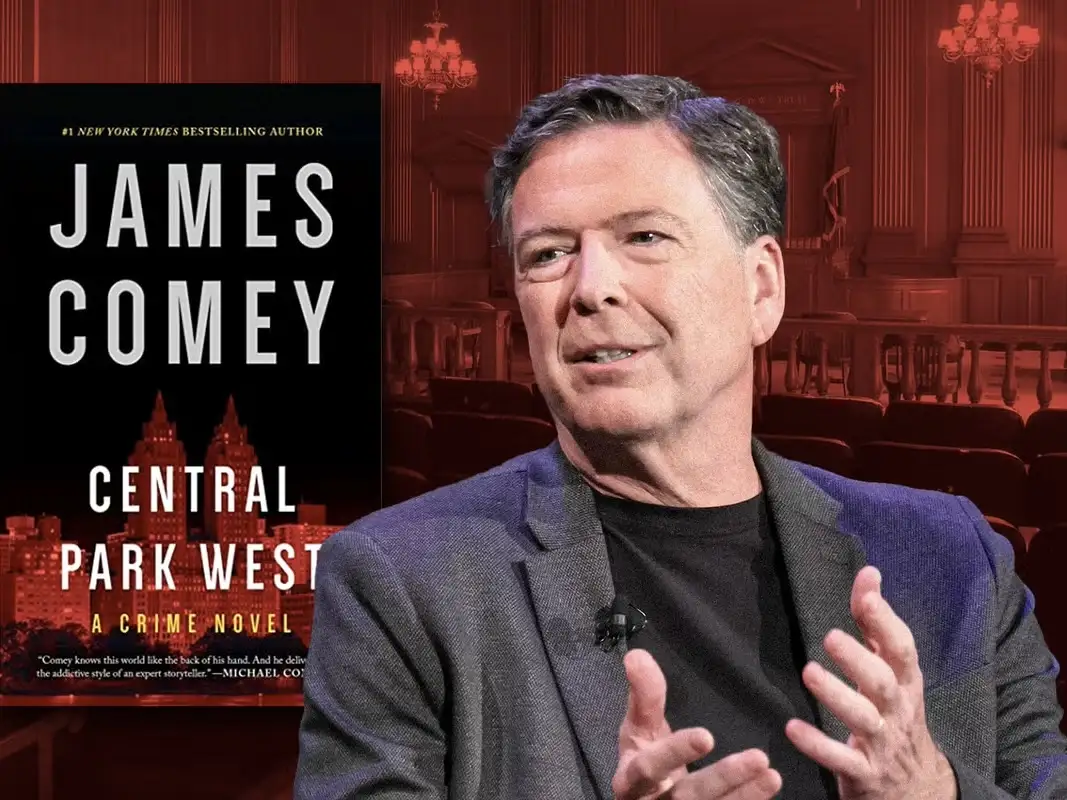
Austin, TX - On a quiet evening at the Austin Central Public Library, former FBI Director James Comey was expected to enjoy a routine book signing event, promoting his latest foray into fiction—a murder mystery novel. However, what unfolded was anything but routine. Owen Shroyer, host of The War Room on InfoWars, turned the event into a surreal and symbolic moment of public reckoning.

With an over-the-top display of enthusiasm, Shroyer sarcastically lauded Comey for his infamous role in U.S. politics, drawing attention to the former FBI director's actions against President Donald Trump. The exchange—equal parts comedy and political statement—quickly went viral, encapsulating the shifting public sentiment towards the so-called "deep state" and its former enforcers.
As Comey sat before a relatively small audience—comprised mostly of older, progressive-leaning attendees—Shroyer stood up, clapping and shouting in celebration:
"The deep state hero, James Comey! The Democrat hero, James Comey! He did it! He illegally investigated Donald Trump! Thank you, Comey, for weaponizing the FBI against Donald Trump!"
The audience, at first confused, remained largely passive. Some seemed genuinely unsure whether Shroyer was being sincere or satirical. Even security hesitated, taking several moments to react, and when they did, they could barely contain their laughter.
"Come on, y’all! Let’s hear it for James Comey! We love the FBI! We love the federal government! Why don’t you guys love the FBI?"
It was a moment that exposed the cognitive dissonance of the crowd, many of whom likely still held onto the notion that Comey was a respected figure in law enforcement, despite his controversial tenure.
James Comey is a figure who occupies a unique place in American political history. As the former head of the FBI, he was central to some of the most contentious political events in modern history, from the Hillary Clinton email investigation to the Trump-Russia probe. His actions led to his dismissal by Trump, but instead of fading into obscurity, he reinvented himself as a public intellectual and a best-selling author.
Yet, this moment in Austin highlighted an uncomfortable truth—Comey is a man without a clear political home. Once vilified by Democrats for reopening the Clinton investigation before the 2016 election, he later became a hero to anti-Trump forces when he was fired and positioned himself as an opponent of the 45th president.
However, Shroyer’s performance shattered that illusion, forcing the audience to confront the contradictions surrounding Comey’s legacy.
"He didn’t disrupt the library, James Comey just disrupted the entire country and a presidential election!"
Comey sat through the ordeal with visible discomfort, aware that he had no real response to the pointed criticism disguised as praise.
Shroyer’s stunt was more than just a public trolling—it was a symbol of the growing skepticism towards U.S. institutions. The FBI, once seen as a bastion of impartial law enforcement, is now viewed by many as a political tool wielded by those in power. Comey, as its former leader, represents this shift. The fact that an event meant to promote his fictional book was overshadowed by real-world consequences of his own decisions speaks volumes.
A decade ago, such a confrontation might have been memory-holed, downplayed, or ignored by mainstream media. Today, it’s nearly impossible to suppress moments like these. Social media platforms, alternative news outlets, and independent voices ensure that establishment figures like Comey no longer get to control the narrative unchallenged.
One of the most fascinating aspects of this event was the generational gap in reaction. Older attendees sat in confusion, while younger viewers online immediately grasped the satire. This suggests a broader cultural shift—many in older generations still believe in the integrity of legacy institutions, while younger Americans have grown up in an era where corruption and manipulation are impossible to ignore.
In an age where traditional political debate often feels stagnant, ridicule has become one of the most effective tools for exposing hypocrisy. What Shroyer did was not just mockery—it was a well-crafted piece of political theater. And the best part? Comey had no counterplay.
The moment security approached Shroyer—chuckling as they did so—the entire room knew the power dynamic had shifted. Comey was not a revered statesman being interrupted by an unruly protestor. He was an exposed figure, trying to maintain dignity while someone highlighted the very actions that made him a household name in the first place.
James Comey’s book event in Austin will be remembered not for the content of his novel, but for the spontaneous moment that revealed how the public views figures like him. Owen Shroyer’s sarcastic praise was a reminder that those who wield power unjustly will, sooner or later, face public accountability—whether through official investigations or public humiliation.
As the political landscape continues to evolve, events like these will become more common. The days of political elites controlling the message without pushback are over. The people are watching, they are laughing, and, most importantly, they are no longer afraid to call out the absurdity of the system.
In the end, the only real mystery at Comey’s book event wasn’t the plot of his novel—it was how he ever thought he could escape the legacy of his own actions.